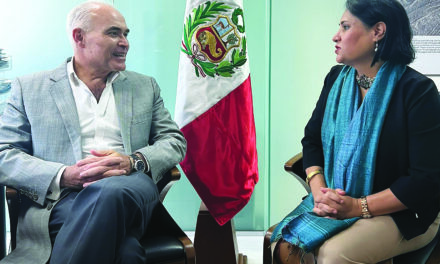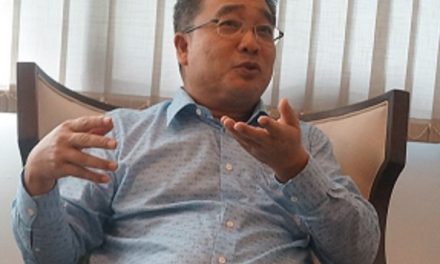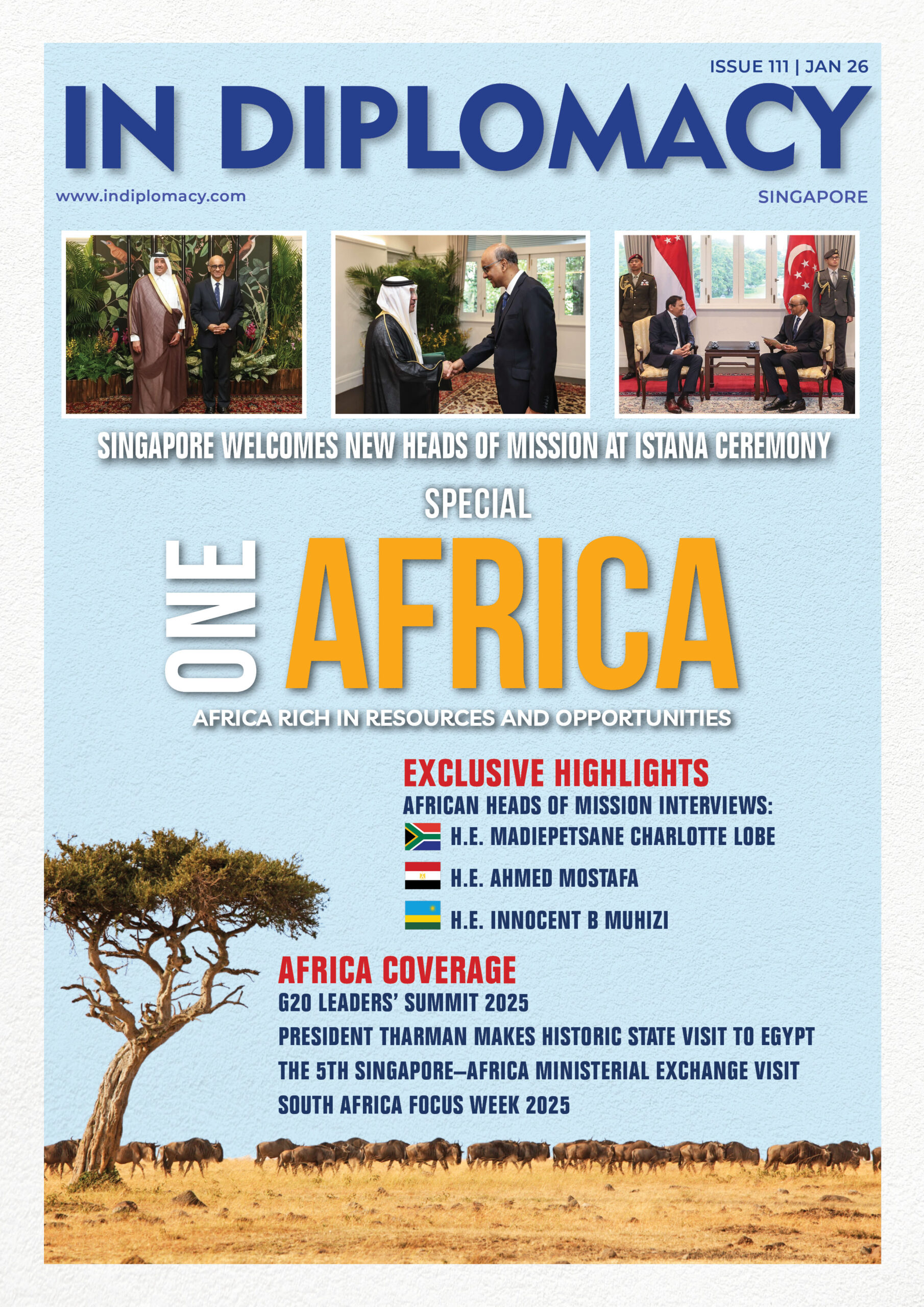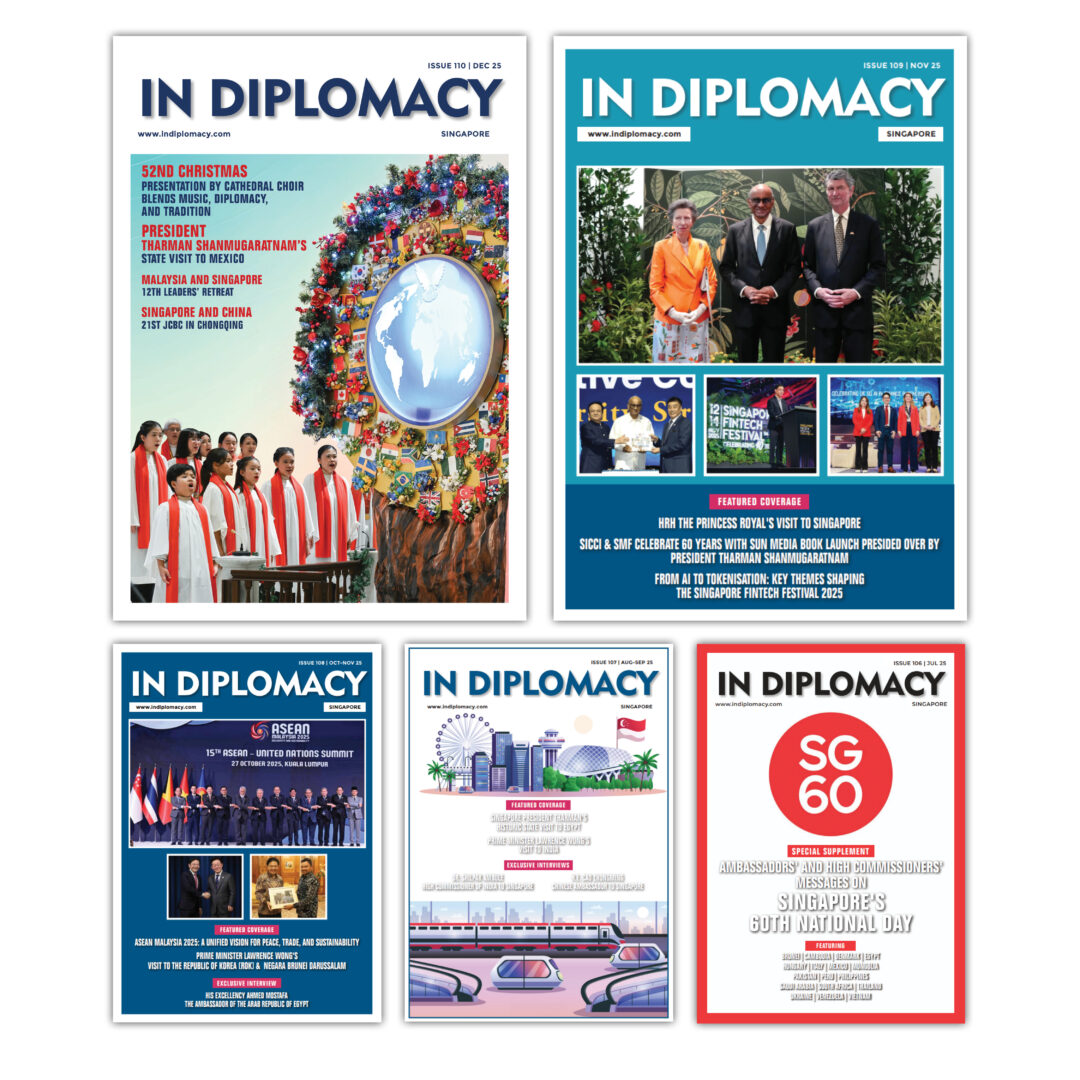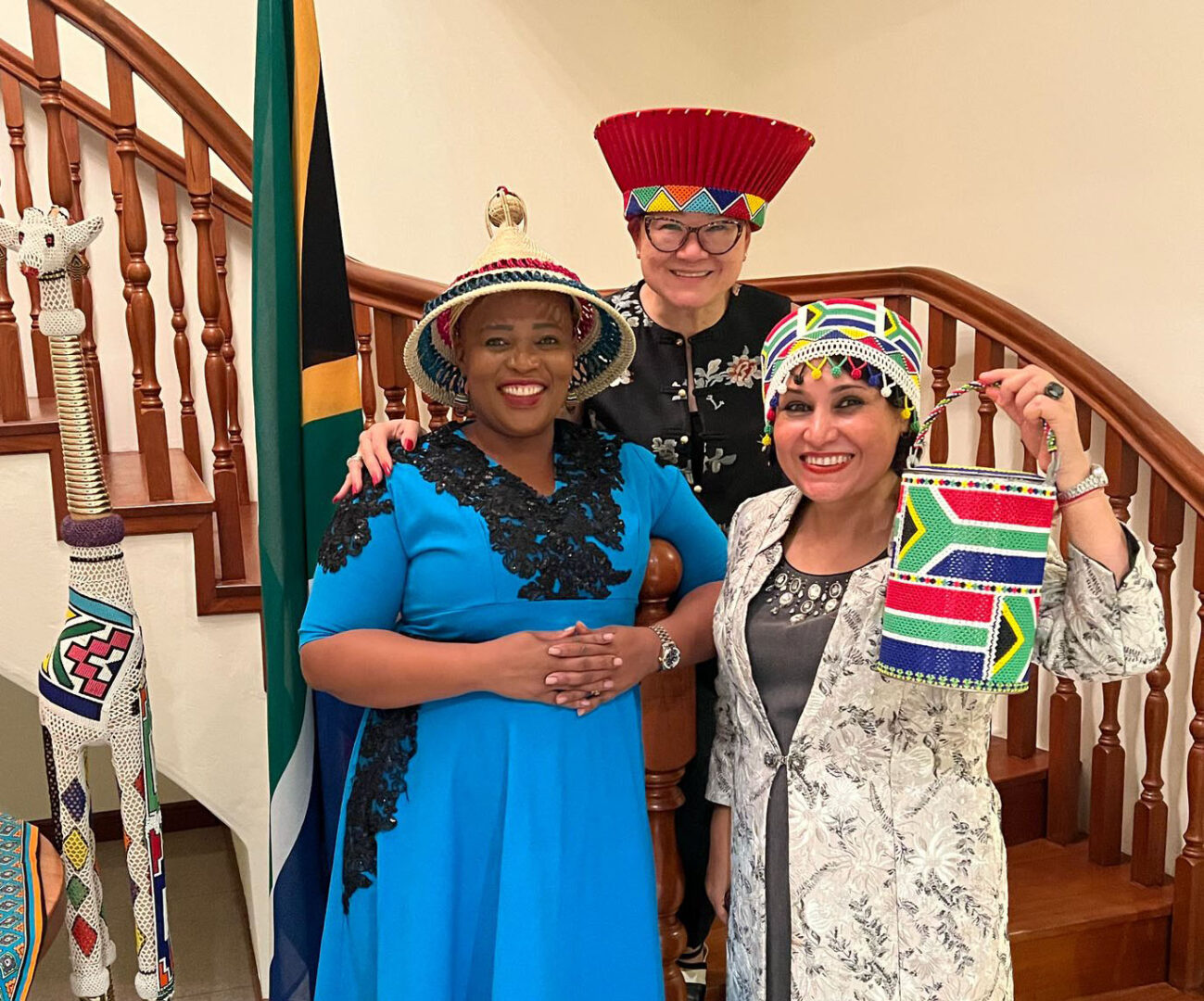
The South African High Commissioner advocates women’s leadership, policy reforms, and education for gender equality in diplomacy.
Singapore, 28 March 2025 – In an exclusive interview with IN Diplomacy, the High Commissioner of South Africa to Singapore, H.E. Madiepetsane Charlotte Lobe, shared her insights on overcoming challenges in a male-dominated field, the role of education in diplomacy, and the progress of women’s participation in global affairs.
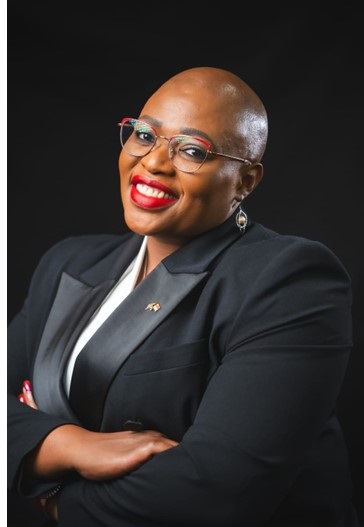
Q: As a woman in a traditionally male-dominated field, what challenges did you face in your early career, and how did you overcome them?
For a long time, leadership has been regarded as an exclusive male domain, despite the numerous successful leadership positions women have held and the interventions aimed at shifting this narrative. Growing up in South Africa’s liberation movement, I witnessed how societal norms discouraged women from participating in politics, often frowning upon female freedom fighters for entering a space seen as reserved for men. Under apartheid, women faced triple oppression—discriminated against on the basis of gender, race, and class—rooted in deep-seated socio-cultural beliefs, gender stereotypes, and misogyny. Even within the liberation movement, women encountered discrimination, with their leadership abilities doubted and contributions downplayed. I often found myself the only woman in the room, carrying the burden of representing my gender, expected to voice women’s concerns while also justifying leadership decisions. My views were sometimes ignored or attributed to a male counterpart, underscoring the deep-seated biases that marginalised women’s roles in history and governance.
In diplomacy, women remain underrepresented in strategic roles, often confined to support functions while core international relations positions are still male-dominated. Without concrete policies promoting gender equity, women struggle for equal footing, and balancing career and family obligations remains a major hurdle, particularly for young diplomats with children. The demands of frequent relocations, long hours, and high-stakes negotiations make it even more challenging. Moreover, female diplomats face heightened scrutiny, unconscious bias, and limited access to mentorship, which can impact career progression and earnings. Institutional fatigue from constantly proving themselves only adds to these barriers, reinforcing the urgent need for systemic change in diplomatic spaces.
Q: How did your education prepare you for a career in diplomacy, and what role do you think education plays in empowering women?
Education has been a lifelong journey of learning, growth, and self-discovery, equipping me with the knowledge, skills, and confidence to pursue my goals. Shaped by the socio-economic conditions of my upbringing, I classify education into two categories: informal and formal. Much of what I know, I learned through the national liberation struggle, making me a product of that movement. I often say that I did not choose the struggle; the struggle chose me. Born a curious girl with aspirations beyond fighting apartheid, the system ultimately shaped me into the person I am today. My participation in the liberation struggle instilled values of compassion and solidarity while also teaching me perseverance, adaptability, problem-solving, communication, and resilience—essential life skills that form the foundation of informal education.
Alongside this, I hold a master’s degree in politics, majoring in governance and political transformation. Formal education provided me with the analytical tools to assess information critically, question assumptions, and make well-informed decisions. While activism in the liberation movement prepared me for leadership, education refined my abilities, enhancing my capacity for critical thinking, logical reasoning, and effective communication—vital skills in diplomacy. Growing up in the movement felt like attending two universities simultaneously, where I turned theory into practice. Diplomacy requires strong analytical thinking, problem-solving, and communication skills, including verbal, written, active listening, and nonverbal communication. Education cultivated these competencies, encouraging me to explore diverse perspectives, question beliefs, and engage in meaningful dialogue—an indispensable foundation for professional and personal growth.
Q: Can you share a moment when you felt like you were breaking new ground for women in diplomacy?
In 2021, the Global Multi-Stakeholder Steering Committee on the Generation Equality Forum (GEF), of which I was a part, adopted the Global Acceleration Plan for Gender Equality. The GEF was established in 2018 following UN Women’s launch of the multi-generational advocacy campaign, Generation Equality: Realizing Women’s Rights for an Equal Future. This initiative aimed to unite emerging women’s rights activists with the gender equality advocates who played a key role in shaping the Beijing Platform for Action. The Steering Committee provided strategic guidance on the conceptualisation and implementation of the GEF, ensuring an intersectional and intergenerational approach. It included civil society, UN Member States (Mexico, France, Canada, Costa Rica, South Africa, Sweden, and Tunisia), the private sector, academia, philanthropic organisations, and international bodies.
The Generation Equality Action Coalitions mobilised governments, women’s and youth-led organisations, international bodies, and the private sector to drive collective action, foster intergenerational dialogue, increase public and private investment, and advance gender equality globally. These coalitions focused on six key themes: (i) Gender-Based Violence; (ii) Economic Justice and Rights; (iii) Bodily Autonomy and Sexual and Reproductive Health and Rights (SRHR); (iv) Feminist Action for Climate Justice; (v) Technology and Innovation for Gender Equality; and (vi) Feminist Movements and Leadership. Through these efforts, the GEF sought to create tangible progress for women and girls across generations.
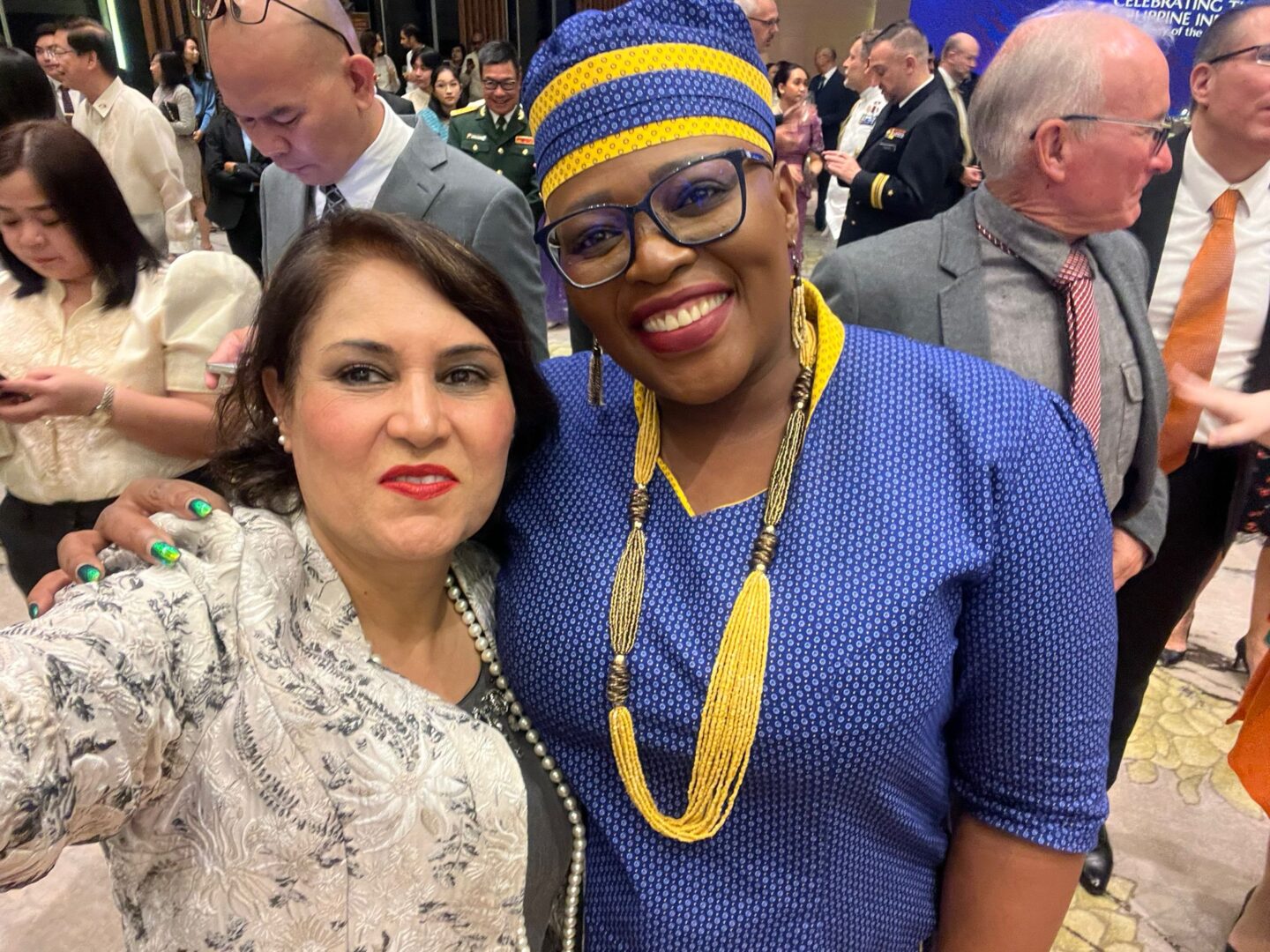
Q: How do you think women’s participation in diplomacy has evolved over the years, and what more needs to be done?
The 1994 democratic breakthrough in South Africa marked a turning point in the struggle for women’s emancipation, leading to significant progress in various sectors, including diplomacy. Today, about 44% of South Africa’s 93 Heads of Missions are women—a remarkable achievement considering that in 1994, there were only two female Heads of Missions. However, despite this progress, systemic barriers rooted in historical power structures, gender stereotypes, and cultural norms continue to marginalize women. The matrices of power that shaped the triple oppression of women remain intact, making the fight for true gender equality an ongoing struggle.
The role of women in diplomacy and political leadership is not new to Africa. Throughout history, African women have played crucial roles as warriors, strategists, and diplomats. Queen Ann Nzinga of Angola resisted Portuguese colonization, declaring her lands a sanctuary for freed slaves and commanding formidable armies for over 40 years. Queen Hatshepsut of Egypt strengthened diplomatic ties and expanded foreign trade, while Queen Amina Sukhera of Zazzau in Nigeria expanded her territory and contributed to agricultural advancements. In Ghana, Yaa Asantewaa led the Ashanti resistance against British rule, rallying her people with a powerful call for freedom. Zimbabwe’s Nehanda Nyakasikana fought against British colonial rule and prophesied her people’s eventual liberation, while Queen Manthatisi of Batlokwa commanded 40,000 troops during the Difaqane wars and later used diplomacy to secure land for her people.
In recent years, international relations and diplomacy have witnessed a shift as more women enter and excel in a traditionally male-dominated field. From serving at entry levels to becoming Heads of Missions and holding key positions in international organizations, women are breaking barriers and redefining global engagement. However, persistent stereotypes and systemic biases continue to challenge their progress, often making a mockery of the strides achieved so far. Despite these obstacles, women in diplomacy are paving the way for greater gender equality, proving that their contributions are not only essential but transformative. Their resilience and leadership continue to inspire future generations to pursue diplomacy and political leadership, ensuring that the fight for inclusivity and representation remains strong.
Q: What initiatives has South Africa taken to promote women’s rights and empowerment, both domestically and internationally?
South Africa’s commitment to gender equality is deeply embedded in its legal and policy frameworks, with the Constitution (1996) serving as the foundation. Chapter 2, commonly known as the Bill of Rights, guarantees the full and equal enjoyment of all rights by all genders and explicitly prohibits discrimination based on race, sex, gender, religion, and other factors. To further advance gender equality, Parliament has enacted key legislation such as the Employment Equity Act (1998) and the Promotion of Equality and Prevention of Unfair Discrimination Act (2000). Additionally, the National Policy Framework for Women’s Empowerment and Gender Equality, introduced in 2000, outlines South Africa’s vision for gender equality and provides a roadmap for realizing this ideal.
Since the advent of democracy, gender mainstreaming has been identified as a critical strategy for creating a more just and equal society rooted in human rights. South Africa has reaffirmed its commitment to gender equality by ratifying international agreements such as the Beijing Platform for Action, which promotes the empowerment of women and girls. The country has institutionalized gender mainstreaming within the public service through the establishment of the National Gender Machinery, now led by the Department of Women, Youth, and Persons with Disabilities. Moreover, South Africa has endorsed various international instruments, including the Convention on the Elimination of All Forms of Discrimination Against Women (CEDAW), the Southern African Development Community Declaration on Gender and Development, and the African Union’s Maputo Protocol on Women’s Rights. Further solidifying its commitment, South Africa ratified the International Labour Organization’s Convention 190 in 2021, which aims to eradicate violence and harassment in the workplace. The country’s Gender Policy Framework not only establishes overarching principles for gender equality but also integrates these principles into policies across all government sectors. By providing a clear strategy for gender mainstreaming and practical guidelines for implementation, South Africa continues to strive toward a society that upholds the dignity, rights, and full participation of all individuals, regardless of gender.
Q: As a woman in a high-pressure role, how do you balance your personal and professional life?
Maintain a healthy work/life balance by managing your time and energy effectively. Create a list of priorities so you know what’s most important in your day-to-day life and stick to a schedule. Avoid taking your work home and using your time with family to discuss your work. Say “no” to tasks that are too overwhelming for your workload. Dedicate your free time to activities you enjoy, like art, reading, hiking, and spending time with loved ones. Start a circle of positive lifestyle, take a walk, go to the gym, do yoga, etc.
Q: Who are some of the women who have inspired you throughout your career, and what qualities do you admire about them?
In addition to the Queens mentioned earlier, Charlotte Mannya -Maxeke, who came to be known as “Mother of Black Freedom in South Africa,” is an inspiration to me. She was a visionary, an intellectual, a leader, an internationalist, a teacher, and a fearless servant of our people. She remains an unparalleled and colossus of a woman, a trailblazer at numerous levels. Charlotte Mannya Maxeke was an artist and a performer who travelled to Europe, Canada, and the US at the turn of the 19th century when travelling was not as easy as it is today. She performed as part of the Jubilee Choir and solo on both domestic and international platforms
Her travel to at least two continents gave her an unparalleled exposure to other cultures and a broader view of the world beyond the limitations of South Africa. We recognize her as an early proponent of the people-to-people mechanism in the context of the conduct of international relations and cooperation in today’s world. Throughout the Choir tour, she exchanged ideas with her contemporaries, shared information, used art to bring South Africa to the world, and used other aspects of culture as part of her performance to foster mutual understanding between her and her audiences.
She also worked with suffragists both in Europe and the US during the Choir Tour. Upon her return home, she participated in a number of international conferences where she highlighted the plight of African women. She advocated for cooperation and understanding between the people of South Africa and friends she made through the tour and her studies abroad. For example, she used her relationship with WEB Du Bois as one of her lecturers at Wilberforce University to continue to inform the world about the conditions of Africans in South Africa. This is documented in some of her letters with this outstanding Pan Africanist.
Q: What support systems do you have in place to help you manage the demands of your job?
Sisterhood!
Q: What advice would you give to young girls and women who are interested in pursuing careers in diplomacy or international relations?
Always be your authentic self! No matter your level of success, continue to be thirsty for knowledge, be curious, never lose your sense of wonder, work hard, love what you do, and remember to recognize and appreciate your achievements. Women often forget to celebrate their success!

